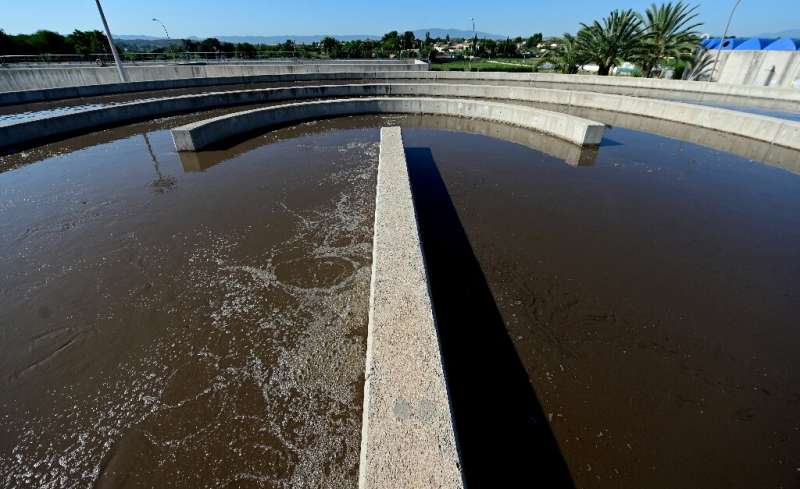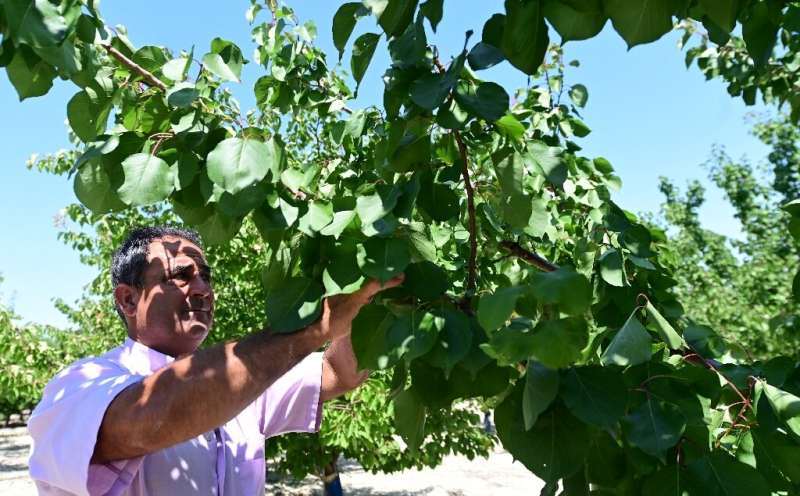In the face of increasingly scarce rainfall, irrigating crops presents a significant challenge. However, farmers in southeastern Spain have found a solution by utilizing recycled wastewater, a model that is gaining attention globally.
“Here the water is still dirty… but by the end, it will be crystal clear and bacteria-free,” explained Carlos Lardin, operations manager at Esamur, the public body responsible for wastewater management in the Murcia region. Lardin, a 45-year-old engineer, described the process of treating the water, which involves de-silting, filtering, and biological treatment to ensure its safety.
Almost 23 years ago, Murcia, an arid region with chronic water shortages and known as the EU’s leading producer of fruit and vegetables, embarked on the ambitious goal of reusing wastewater for irrigation. Through the construction of a network of 100 treatment plants, the region is able to process and disinfect water from the sewage system, making it suitable for agricultural use.
The treatment involves sand filters and ultraviolet rays, effectively removing contaminants and bacteria like E.coli from the water, as stated by Lardin.
‘An important resource’
The efforts in Murcia have resulted in an impressive 98 percent of wastewater being reused, a stark contrast to the average of 9 percent in Spain and 5 percent in the EU, according to government figures.

This significant reuse of wastewater plays a crucial role, particularly as the central government has recently imposed restrictions on Murcia’s water transfers from the Tagus River, which has experienced dangerously low levels. Approximately 15 percent of the region’s irrigation needs are now met by recycled wastewater, according to Esamur.
Feliciano Guillen, head of the Ceuti irrigation organization in northeastern Murcia, acknowledges that while it’s not enough to cover all the water needs, it still holds great importance. Local farmer Jose Penalver, who owns 10 hectares of land, also emphasizes the value of utilizing any available water source for effective irrigation.
In his fields, Penalver employs an automated drip-irrigation system, which allows him to optimize water usage, applying only what is necessary for two hours per day. He recognizes the vital role of recycled water, stating, “Without this (recycled) water, everything here would dry up. Every drop counts.”

‘A precious resource’
To safeguard agriculture from the impacts of global warming, the Spanish government has committed to increasing the national rate of wastewater usage. They have allocated 1.4 billion euros ($1.5 billion) to develop the necessary infrastructure. Ecology Minister Teresa Ribera emphasized the value of recycled water, stating, “Water is a precious resource which can also be recycled… it’s worth the effort.” She highlighted the importance of collaboration with small towns and villages that face challenges in making such investments.
According to the Spanish Association for Desalination and Water Reuse (AEDyR), 27 percent of the country’s 2,000 wastewater treatment plants have the capability to purify water for agricultural use. With increased investment, this figure could be further improved.
The cost-effectiveness of recycling wastewater, compared to desalinating seawater, has attracted international interest. French President Emmanuel Macron has expressed his desire to increase water reuse, taking inspiration from Spain’s success. Murcia has already welcomed numerous foreign delegations, including visitors from Argentina and Bolivia, who have come to observe their wastewater treatment facilities.
Lardin concluded by highlighting the reliability and stability of recycled water for irrigation, stating, “This water doesn’t depend on the weather, and at the very least, it guarantees a stable quantity of water for irrigation.”
© 2023 AFP
Citation:
‘Every drop counts’: Spain’s crops thrive on wastewater (2023, June 21)
retrieved 21 June 2023
from https://phys.org/news/2023-06-spain-crops-wastewater.html
This document is subject to copyright. Apart from any fair dealing for the purpose of private study or research, no
part may be reproduced without the written permission. The content is provided for information purposes only.



